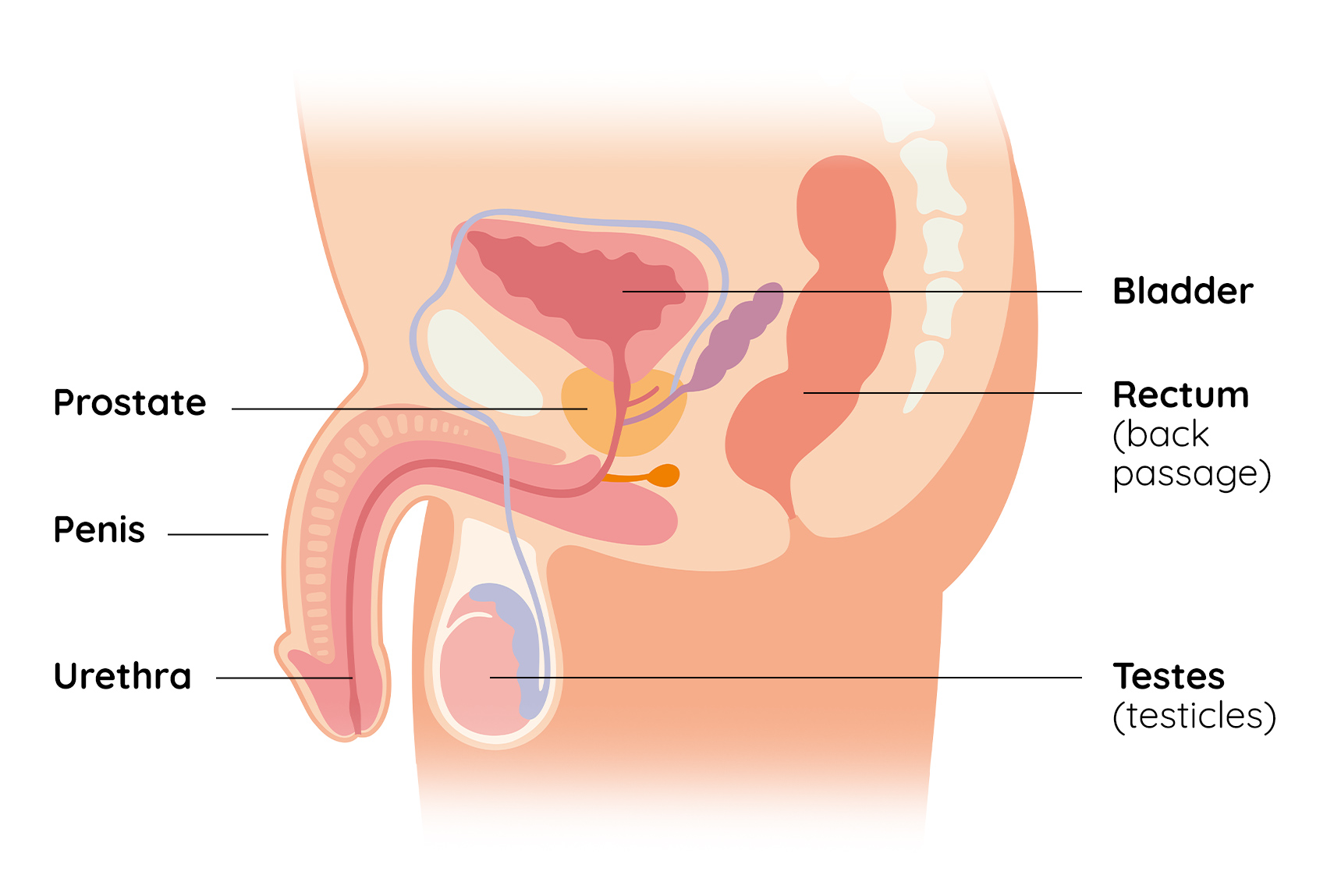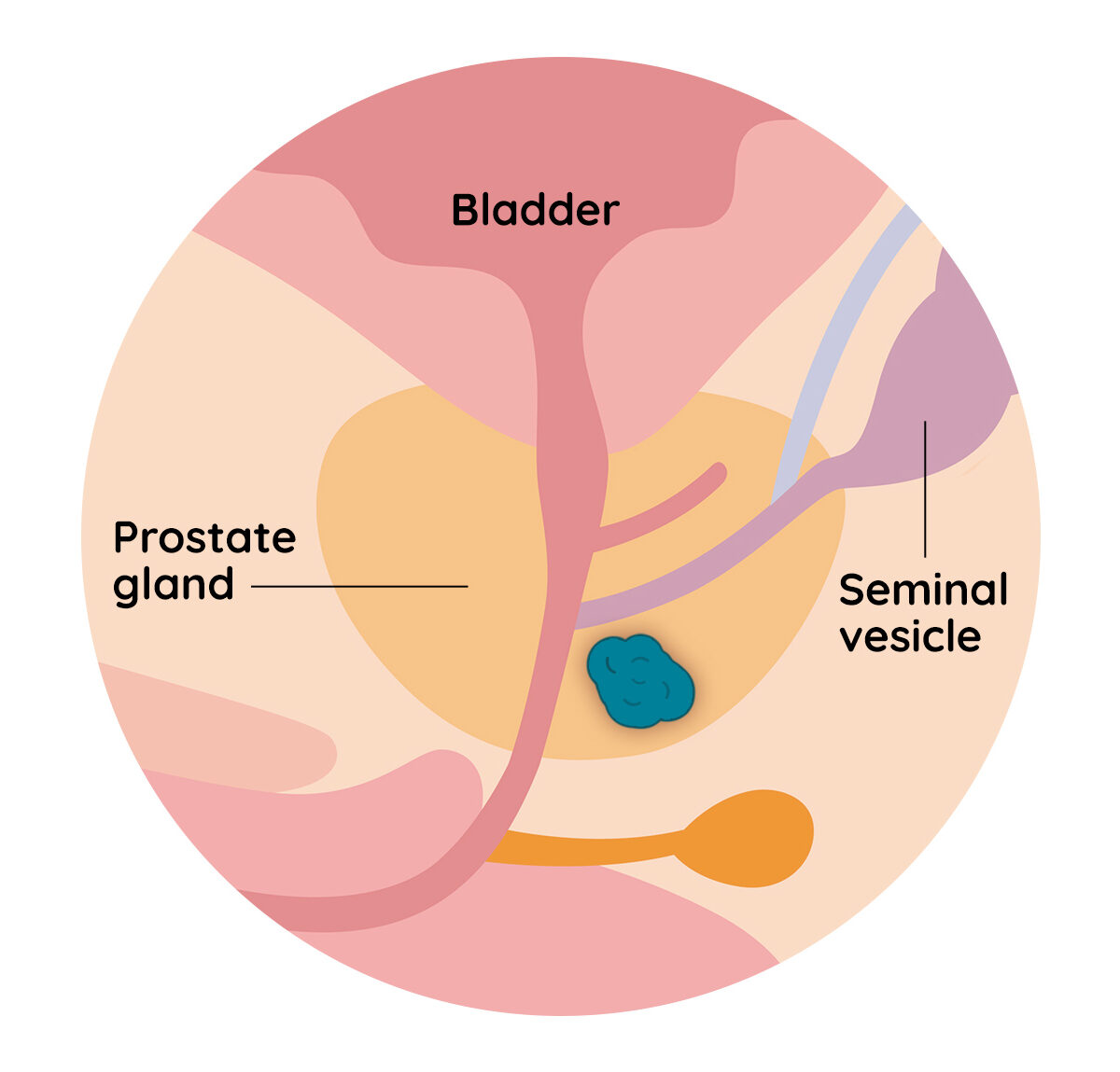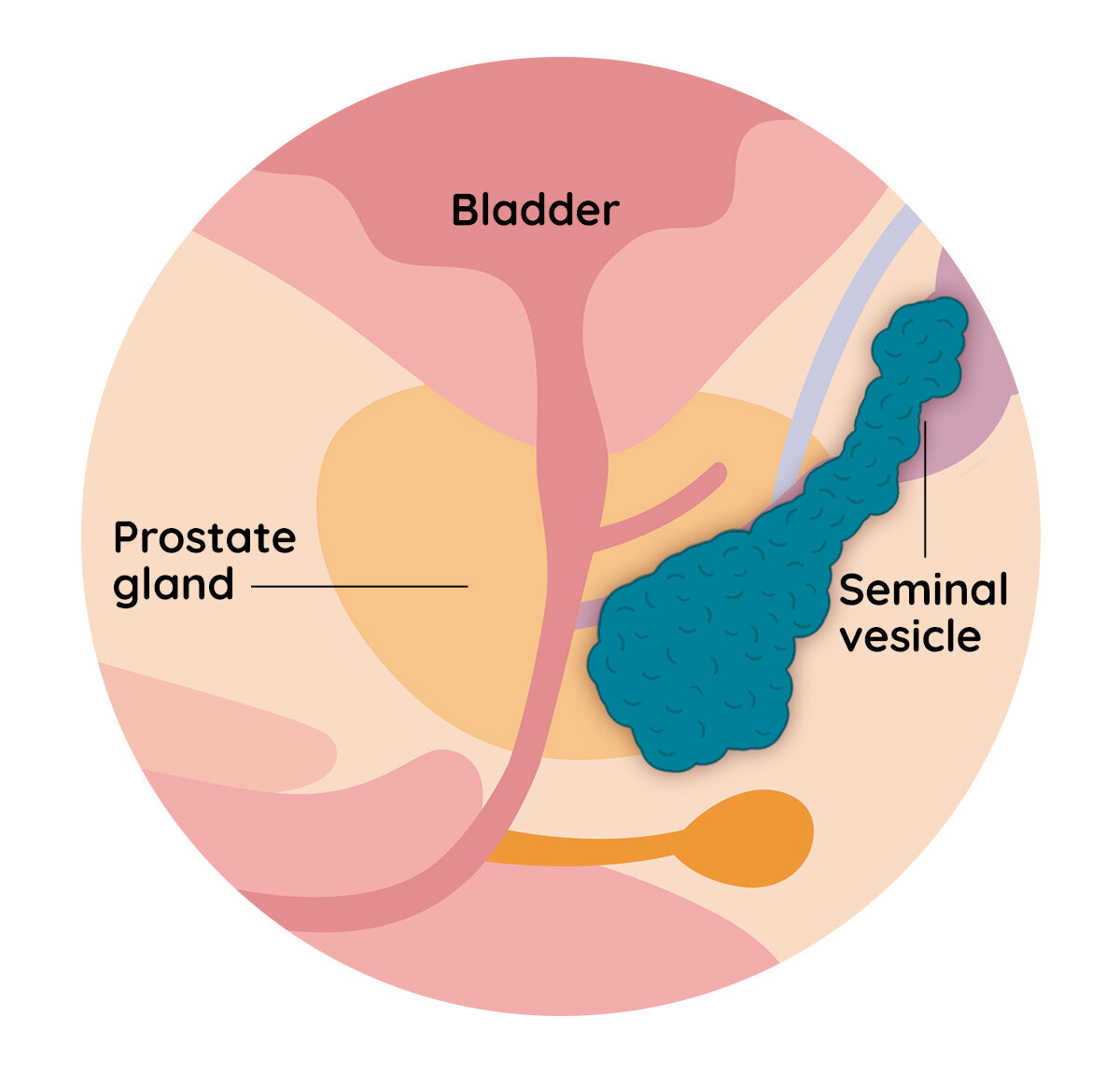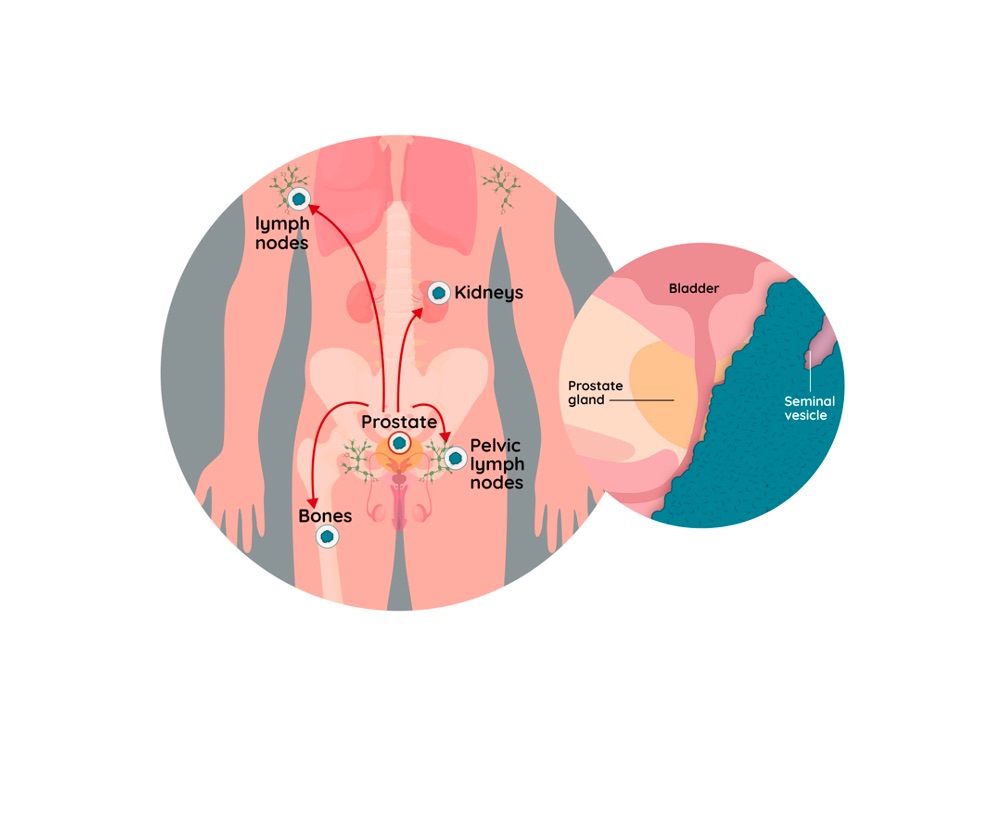What is Prostate Cancer?
Prostate cancer is a type of cancer that starts in the prostate gland. It is where the cells of the prostate start to grow in an abnormal way to form a lump (tumour).1,2
This section of the website is for patients who have been prescribed Decapeptyl® (triptorelin) in Ireland. Information for members of the general public can be found here.
Side effects reporting information is available at the bottom of this webpage.
This website has been commissioned by Ipsen Pharmaceuticals Ltd. and is intended for an Irish audience
Prostate cancer is a type of cancer that starts in the prostate gland. It is where the cells of the prostate start to grow in an abnormal way to form a lump (tumour).1,2


About 3,940 men are diagnosed with prostate cancer each year in Ireland. This means 1 in 7 men will be diagnosed with prostate cancer during their lifetime.1
One of the risk factors for prostate cancer is older age.2 It usually affects men over 50, and nearly 2 out of every 3 prostate cancers are diagnosed in men over 65.2
Having a relative with prostate cancer is another possible risk factor for the disease.2
Certain ethnic groups are also at higher risk for prostate cancer than others.2 Notably, people of Black-Caribbean or Black-African ancestry more often have prostate cancer than people of White or Asian backgrounds.2,3
The prostate is a small gland that is part of the male anatomy. A gland is a type of organ that produces and releases substances that have a specific function in the body.4
The prostate is often referred to as being about the size of a walnut, which is roughly 2–3 cm across.3,5
It can be found just below the bladder and surrounds the tube (urethra) through which urine (pee) and semen are released.3,5


The prostate plays a role in reproduction. Its main role is to produce a fluid that helps to make semen, which is the fluid that carries sperm from the testes.4,6 Additionally, the prostate’s muscles help to move semen into and down the urethra during ejaculation.6
The prostate fluid contains a protein called prostate-specific antigen (PSA). This protein is a marker for prostate health and can be used to detect prostate cancer and monitor the effects of prostate cancer treatment.5
The male sex hormone testosterone is central to how the prostate works. This hormone is made in the testes and is converted to its biologically active form in the prostate.6
Testosterone is important because it helps prostate cancer cells to grow.6 It also has an important influence on muscle strength, sex drive (libido) and the ability to get and maintain an erection.
Prostate cancer is generally described based on how far it has spread in the body.3
When prostate cancer can only be found inside the prostate gland, it is referred to as localised prostate cancer.3
Localised prostate cancer can be described as being low-risk, intermediate-risk or high-risk. These risk categories refer to how quickly prostate cancer is likely to grow and spread to other parts of the body in the next few years.3 These categories also help doctors decide on the prostate cancer treatment to give an individual patient.

Locally advanced prostate cancer is where prostate cancer has started to grow outside of the prostate gland and invade nearby organs.3
This can include the seminal vesicles, which are two small glands that sit on either side of the prostate gland. Locally advanced means that the cancer has not yet spread far away from its original site in the prostate.

Metastatic prostate cancer is where the prostate cancer is now growing outside of the prostate gland, further away from the prostate itself. It means that there are new growths (metastases) in other parts of the body.3
Common sites for prostate cancer to spread to include the bones and lymph nodes. Lymph nodes are part of the immune system and are present throughout the body, for example, in the groin, neck and armpit.7

Adverse events should be reported.
Reporting forms and information can be found at www.hpra.ie or e-mail medsafety@hpra.ie.
The HPRA can also be contacted on +353 16764971. Adverse events should also be reported to Ipsen via email at pharmacovigilance.uk-ie@ipsen.com or phone on +353 1 8098256.
Reporting of side effects:
If you get any side effects, talk to your doctor, pharmacist or nurse. This includes any possible side effects not listed in the package leaflet. You can also report side effects directly to the HPRA. Reporting forms and information can be found at www.hpra.ie or email medsafety@hpra.ie. Adverse events should also be reported to Ipsen via email at pharmacovigilance.uk-ie@ipsen.com or phone on +353 1 8098256. By reporting side effects, you can help provide more information on the safety of this medicine.